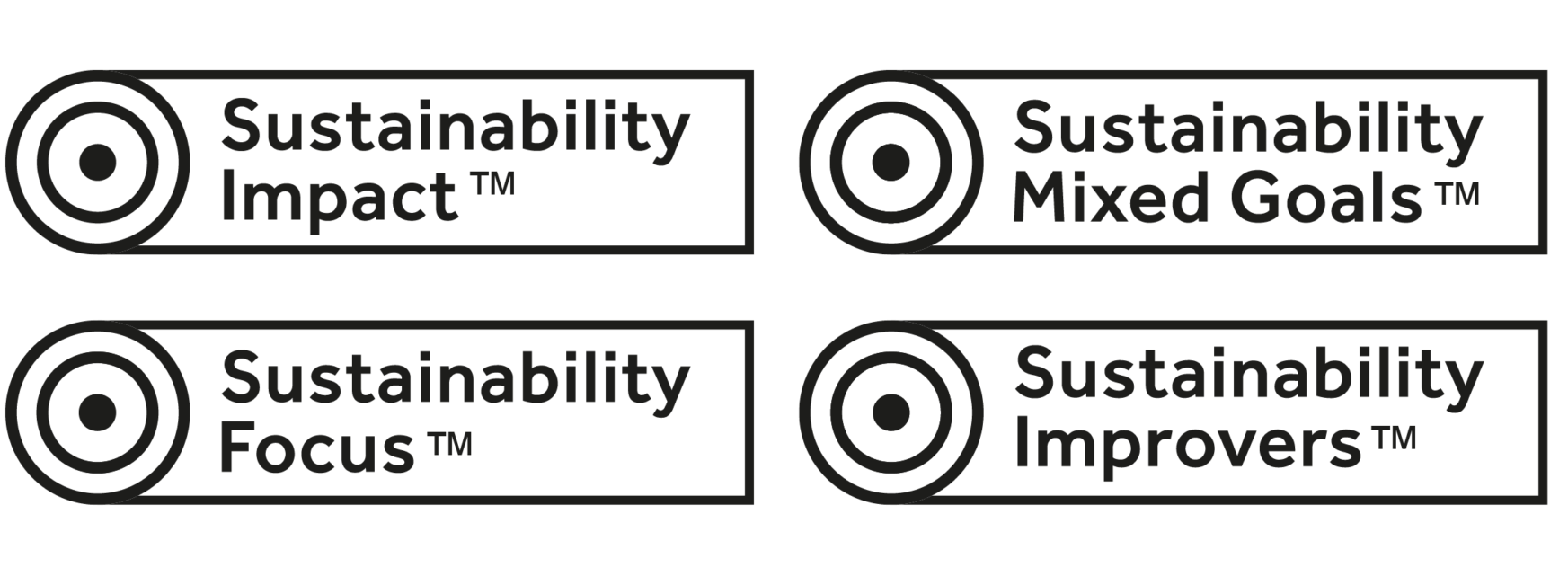ESG and Sustainability
ESG, or Environmental, Social and Corporate Governance to give it its full title, is a very broad term that has become synonymous with the investing world. Initially heard in the institutional investment environment, the term has also been adopted in the retail space and is often used by different fund managers in different ways. So, what does it mean and is everything now ESG? ESG can be broken down into:

Environmental
Focuses on how a business minimises its impact on the environment, covering its products/services, the supply chain and its operations. The impact can include climate change, deforestation, pollution and waste management.
Social
Focuses on how a business impacts wider society and workplace culture. Organisations can positively contribute to fairness in society, investing in fair and equal opportunities and conditions for employees, people working in the supply chain, and local communities.
Corporate
Governance
Refers to the processes of decision-making, reporting, and the logistics of running a business. It also looks at the business’s ethical behaviour and its transparency with stakeholders about its activities. But also covers the diversity of a company’s leadership team, executive pay or how the company handles tax.
An Important Role
In the tax-efficient investing space, ESG plays an increasingly important role in the investment decision-making process used by a growing number of fund managers. ESG principles and screens are often used during the due diligence process and investee companies will be required to report on how they are tackling ESG issues. Whilst previously there was no regulation on what ESG claims a fund manager could make, the FCA has stepped in with the Sustainability Disclosure Requirements (SDR) and investment labels regime with the simple aim that financial products that are marketed as sustainable should do as they claim and have the evidence to back it up.
FCA Sustainability Disclosure and Labelling Regime
In November 2023 the Financial Conduct Authority (FCA) introduced a package of measures to improve the trust and transparency of sustainable investment products and reduce greenwashing.
These are:
- An anti-greenwashing rule that applies to all FCA-authorised firms who make sustainability-related claims about financial products and services.
- Investment labels, disclosure and naming and marketing rules that apply to UK asset managers.
- Targeted rules that apply to distributors of investment products to retail investors in the UK.
See the FCA Policy Statement Sustainability Disclosure Requirements (SDR) and investment labels policy statement (PS23/16) for more information, including Annex 2, which sets out an overview.
Implementation Timeframes
The rules and guidance came into force on the following dates:
28th November 2023
SDR Publication
Initial publication date
31st May 2024
Anti-Greenwashing
Anti-greenwashing rules & guidance come into effect
31st July 2024
Label Use
Firms can now use labels with appropriate disclosures
2nd December 2024
Naming & Marketing
Naming and marketing rules & disclosures come into effect
2nd December 2025
£50bn+ AUM Firms
Ongoing product & entity-level disclosures
2nd December 2026
£5bn+ AUM Firms
Extended entity-level disclosure rules
Anti-Greenwashing Rule
From 31st May 2024, firms have needed to ensure their sustainability references are fair, clear and not misleading, and proportionate to the sustainability profile of the product and service. However, firms subject to the naming and marketing rules for asset managers weren’t required to meet those additional requirements until 2nd December 2024.
The Four Sustainability Labels
The FCA has introduced 4 investment labels for products with sustainability objectives that aim to improve or pursue positive outcomes for the environment and/or society.
- Sustainability Focus: This label is for products that aim to invest at least 70% of their assets in environmentally and/or socially sustainable assets. These investments must meet a robust, evidence-based standard of sustainability.
- Sustainability Improvers: This label applies to products that invest at least 70% in assets with the potential to improve environmental and/or social sustainability over time. The selection of these assets must be based on their potential to meet sustainability standards.
- Sustainability Impact: This label is designated for products that aim to achieve a predefined positive, measurable impact related to environmental and/or social outcomes, investing at least 70% of their assets in alignment with this goal.
- Sustainability Mixed Goals: This label is for products that have a combination of sustainability objectives, investing at least 70% in accordance with the criteria of the other labels. Firms must disclose the proportion of assets invested under each label’s criteria.

We have so far seen a low uptake of the labels in the tax efficient space, based on Funds that previously included ESG language in their marketing documentation. We commend those Fund Managers that have applied for a label, underscoring their commitment to sustainable investment and will make the labels available on the GrowthInvest platform.
Podcast Focussing on Sustainability Labels
Alternative Thinking podcast hosts Mel and Steve talk with special guest Lee Coates, OBE, from ESG Accord, about Fund Labels & SDR and their implications for Fund Managers and Wealth Managers.
Alternative ESG Credentials
Fund Managers can also sign up to third-party accreditation initiatives. These initiatives require fund managers to meet certain objectives or principles. These may relate to their own corporate practices, their investment processes, or in some cases both. A selection of these initiatives are included below:
UNPRI signatory
B-Corporation certification
Investing in Women Code signatory
UKSIF member
UK Stewardship Code signatory
UN Global Compact participant
Climate Action 100+ signatory
Venture ESG member
Living Wage employer
Net Zero Asset Managers Initiative signatory
Diversity Project member
Diversity VC Standard member
GRESB member
HMT Women in Finance Charter signatory
ESG_VC member
Adviser Hour Featuring ESG
After the success of our previous ESG episodes, we look at the potential impact and implications of these changes, and explore the ways that advisers can access and categorise ESG Investments, especially in the private markets and for tax efficient and unlisted equities, including:
- FCA Sustainability Disclosures Impact on Advisers
- Green-washing & labels
- The Specific Regulatory Requirements for advisers
- Discussion of 3rd party research and classifications around ESG
- How to present to clients
- How earlier stage ESG & Sustainable investing be introduced into a client’s portfolio, and how to incorporate into suitability
- The options for Ethical, Sustainable or Impact investing in the tax efficient market

